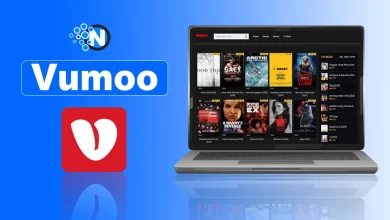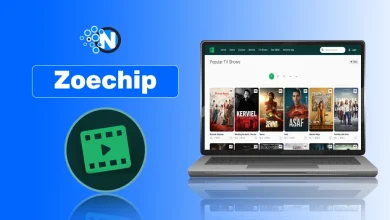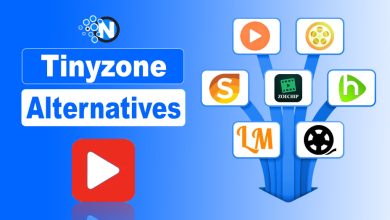Top 10 Facebook Marketplace Alternatives to Sell Your Stuff
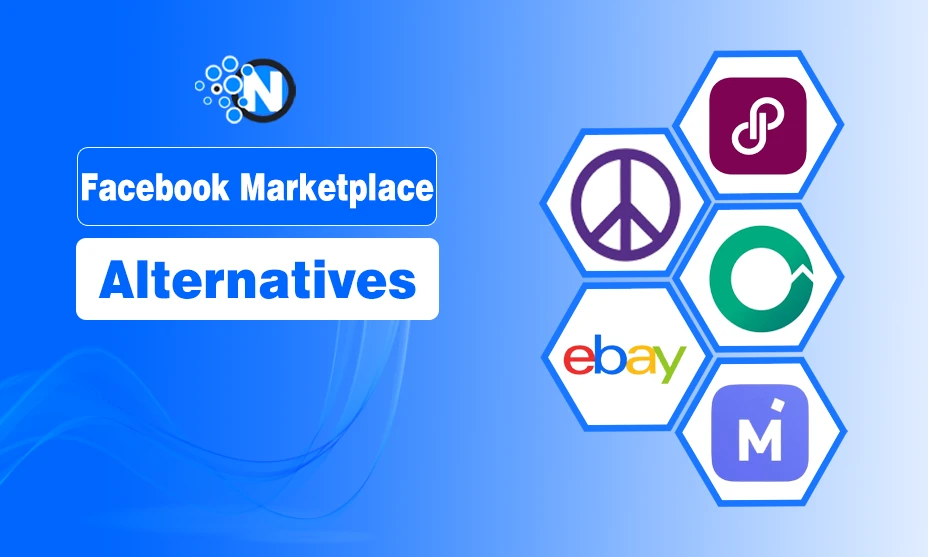
Selling items online has become a convenient way to earn money and connect with buyers. While Facebook Marketplace is a popular platform and has delivered significant benefits in this context, others are also there. These Facebook Marketplace alternatives resonate with the preferences of a larger audience.
Hence, more and more users are getting biased toward them. If you are also looking forward to selling your items online, it would be best to visit top markets. I have created this blog post to detail the top 10 best options you can visit for better results.
Best Facebook Marketplace Alternatives
In the under section, I have mentioned the top 10 best Facebook Marketplace alternatives where you can sell your stuff online.
1) eBay – Global buying and selling
eBay is a well established marketplace with millions of active users worldwide. It allows sellers to list items through auctions or fixed price formats. Thus, it delivers benefits to both, individual sellers and businesses.
eBay supports a vast range of products, from electronics to antiques, and offers secure payment methods, including PayPal. The platform’s global reach and user friendly tools make it a versatile choice for selling almost anything
| Pros | Cons |
|---|---|
| Access to a global audience | Competitive marketplace |
| Auction and fixed-price options | |
| Secure payment options | |
| Robust seller protection | |
| Wide product categories |
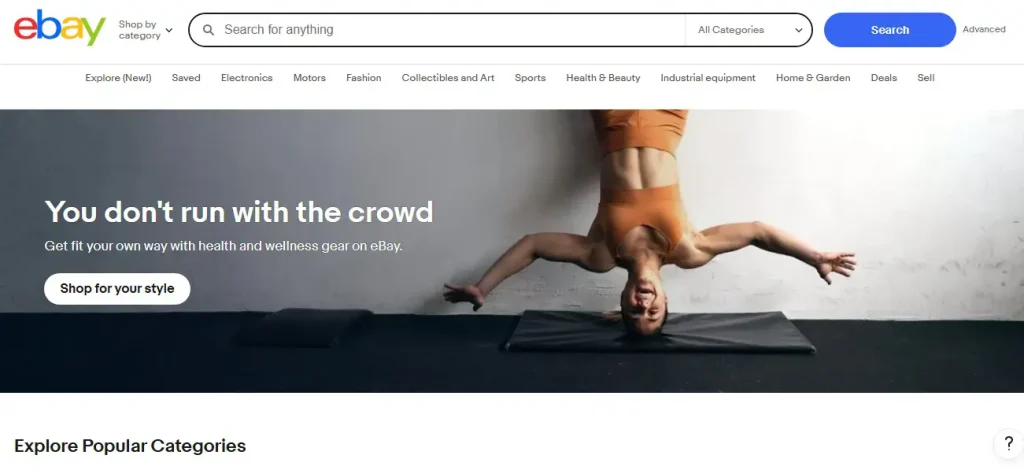
2) Craigslist – Simple local classifieds
Craigslist is a free online platform for local buying and selling. Its straightforward interface allows users to post ads quickly which makes it ideal for selling furniture, electronics, and vehicles. That’s why, Craigslist is one of the best Facebook Marketplace alternatives.
It is particularly useful for those who prefer face to face transactions within their community. While the platform is free, users should practice caution due to the potential for scams.
| Pros | Cons |
|---|---|
| Free to use | Higher risk of scams |
| Local focus | |
| No commission or fees | |
| Quick and easy listings | |
| Great for large items |
3) Amazon Marketplace – Reach millions globally
Amazon Marketplace is a platform that allows individuals and businesses to sell new or used items to Amazon’s vast customer base. Sellers can choose between self fulfillment or Amazon fulfillment service (FBA).
While the platform offers excellent tools for managing inventory and shipping, it charges significant fees. Amazon Marketplace is ideal for sellers with bulk items or those looking to scale their business.
| Pros | Cons |
|---|---|
| Massive customer base | High seller fees |
| Tools for inventory management | |
| Fulfillment by Amazon (FBA) | |
| Trusted platform | |
| Global reach |
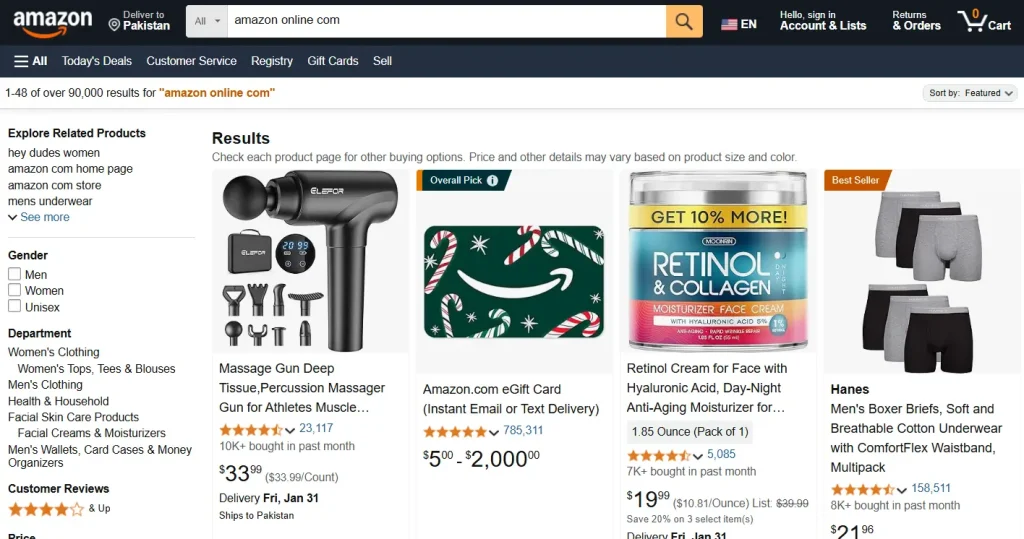
4) Mercari – Sell almost anything
Mercari is an app based platform that connects sellers with a nationwide audience. It simplifies the selling process by providing prepaid shipping labels. As a result, buyers can ship items across the country comfortably.
The platform is suitable for selling a wide range of products, from clothing to electronics. Mercari’s secure payment system ensures a safe experience for both buyers and sellers.
| Pros | Cons |
|---|---|
| Nationwide audience | Seller fees apply |
| Prepaid shipping labels | |
| Secure payment system | |
| Easy-to-use app | |
| No in-person meetups required |
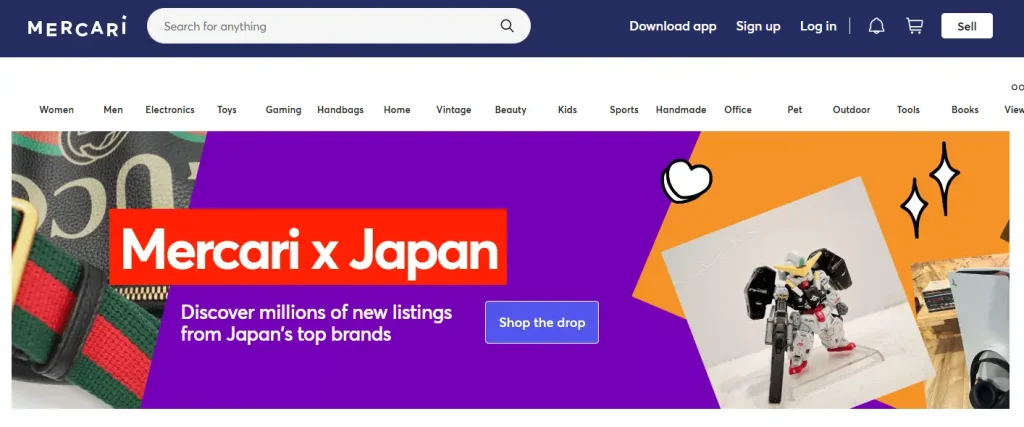
5) Poshmark – Trendy resale platform
Poshmark is a fashion focused marketplace that specializes in clothing, accessories, and home goods. The platform encourages a social shopping experience, where users can follow sellers, share listings, and join virtual “Posh Parties.”
The shipping system of Poshmark simplifies logistics for sellers, but its fees may be higher than other platforms. It is a great choice for those looking to sell trendy or pre loved fashion items.
| Pros | Cons |
|---|---|
| Focused on fashion | High seller fees |
| Social shopping experience | |
| Nationwide shipping options | |
| Active buyer community | |
| Easy listing process |
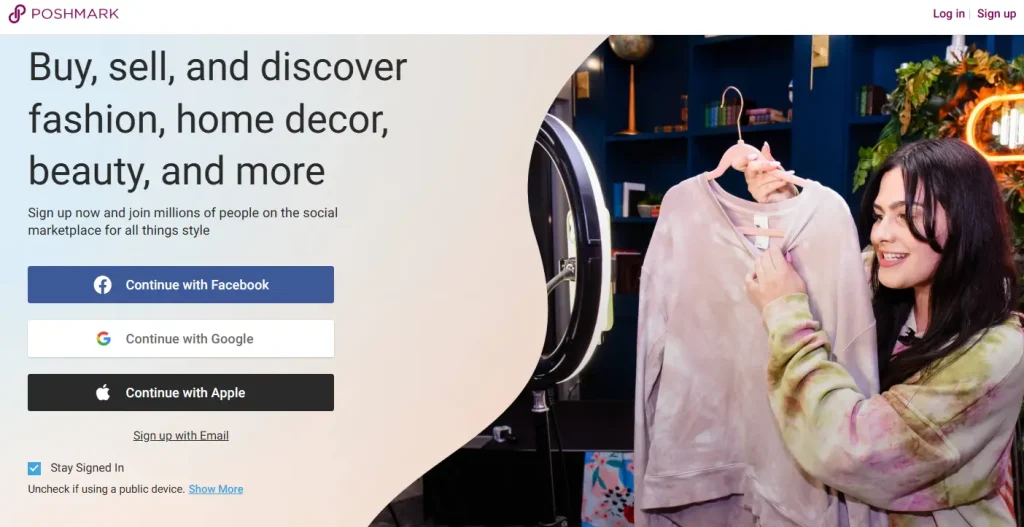
6) Etsy – Handmade and vintage goods
Etsy is a niche marketplace for creative sellers that offer handmade, vintage, or unique products. It is ideal for artists, crafters, and small business owners who want to reach a global audience.
One of the best parts of this platform is that it provides tools for customizing storefronts and marketing products. While listing fees apply, Etsy’s focus on quality and creativity attracts a dedicated customer base.
| Pros | Cons |
|---|---|
| Niche market for creatives | Listing and transaction fees |
| Global reach | |
| Customizable storefronts | |
| Support for small businesses | |
| Dedicated customer base |
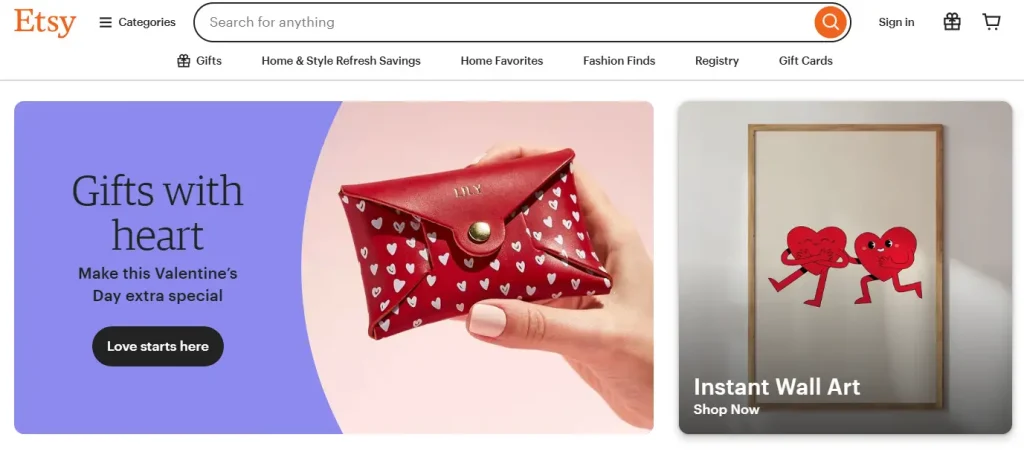
7) Depop – Fashion meets community
Depop is a social commerce platform popular among younger audiences. It combines elements of social media with e commerce. Hence, users can create visually appealing profiles and engage with followers.
The platform is ideal for selling vintage clothing, streetwear, and unique fashion items. Its vibrant community and creative vibe make it a standout choice for trendy sellers.
| Pros | Cons |
|---|---|
| Social media integration | Seller fees apply |
| Popular among Gen Z | |
| Easy to list items | |
| Great for vintage fashion | |
| Engaging user community |
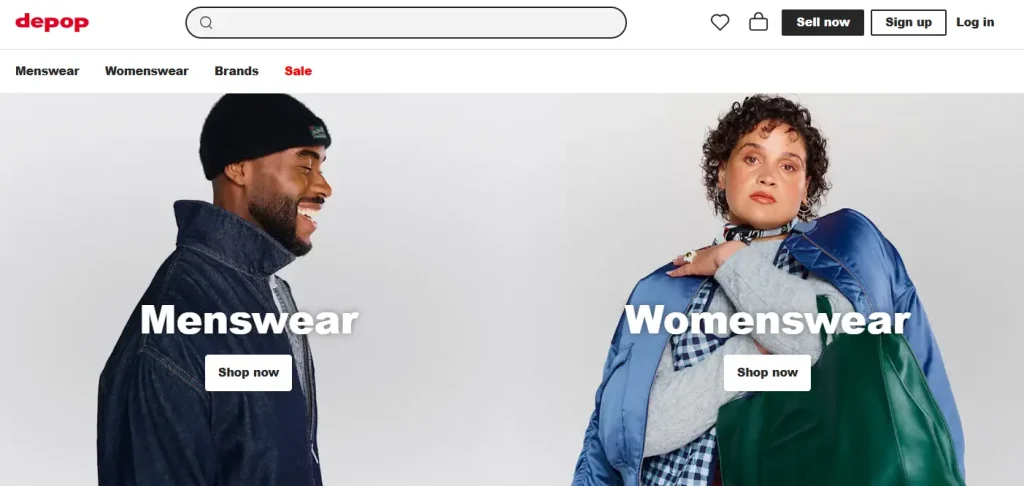
8) Nextdoor – Sell within neighborhoods
Nextdoor is a hyper local platform that connects neighbors within a specific area. It is perfect for selling household items, furniture, and appliances to nearby buyers. Nextdoor empowers trust through address verification.
In this way, it guarantees a safer experience for users. Its community oriented approach makes it a great option for those who want to sell locally.
| Pros | Cons |
|---|---|
| Localized focus | Limited to local sales |
| Trust through verification | |
| Free to use | |
| Great for large items | |
| Community-oriented platform |
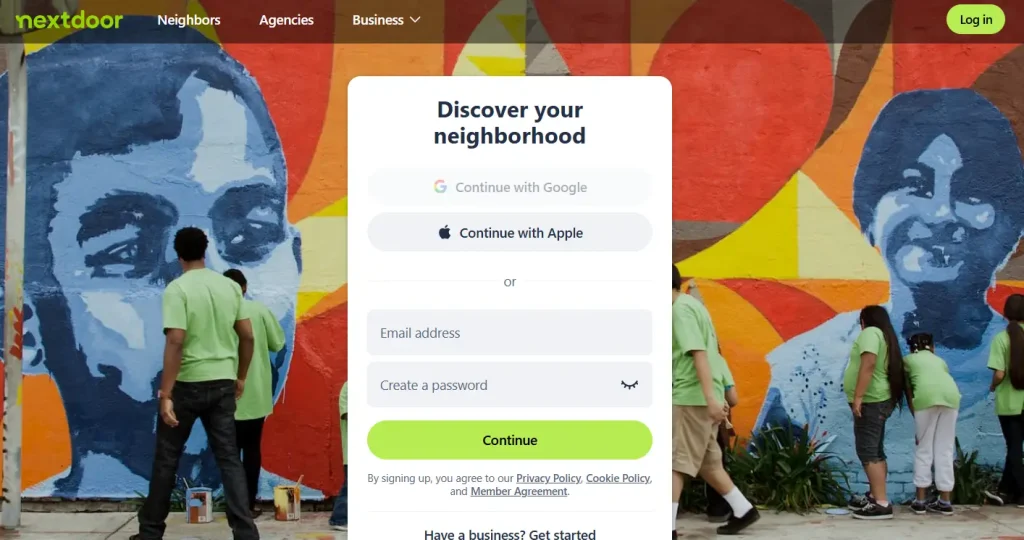
9) Chairish – Sell vintage furniture
Chairish is a premium marketplace for selling vintage and high end furniture, home décor, and art. It is ideal for sellers with unique or upscale items looking to reach a niche audience. Chairish handles logistics like shipping and payment processing.
Thus, it allows sellers to focus on listing their items. While fees are higher, the platform’s curated approach attracts serious buyers.
| Pros | Cons |
|---|---|
| Focused on premium items | Higher fees for sellers |
| Curated marketplace | |
| Handles shipping logistics | |
| Attracts serious buyers | |
| Easy-to-use platform |
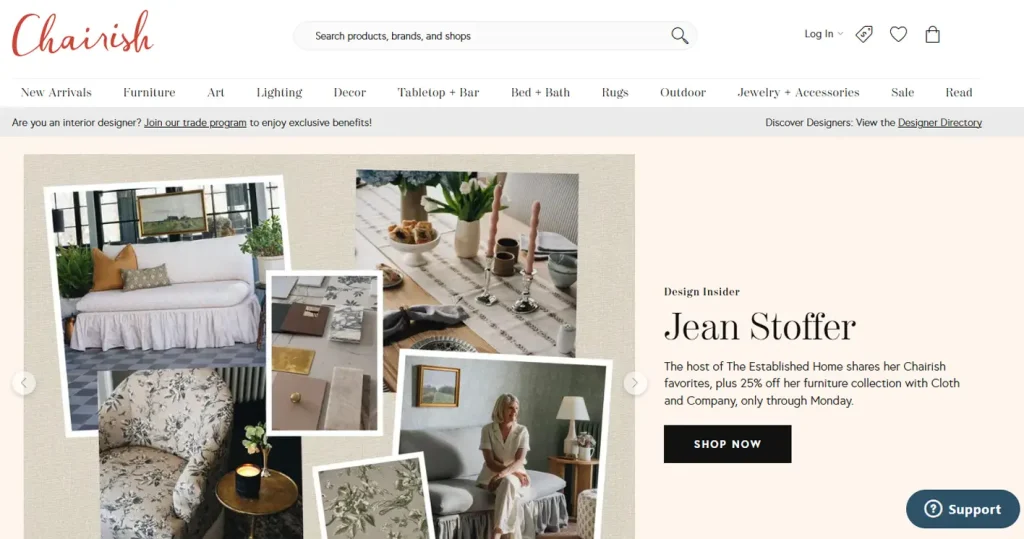
10) OfferUp – Buy and sell locally
OfferUp is a mobile first platform designed for local transactions. It provides a seamless user experience with features like in app messaging and seller ratings to build trust. Moreover, the platform allows users to sell a variety of items.
These include furniture, electronics, and clothing. The primary focus of OfferUp is on local communities. Hence, it is one of the best picks for quick, hassle-free transactions.
| Pros | Cons |
|---|---|
| User-friendly interface | Limited global reach |
| Trust-building seller ratings | |
| In-app messaging | |
| Focused on local sales | |
| Free to list items |
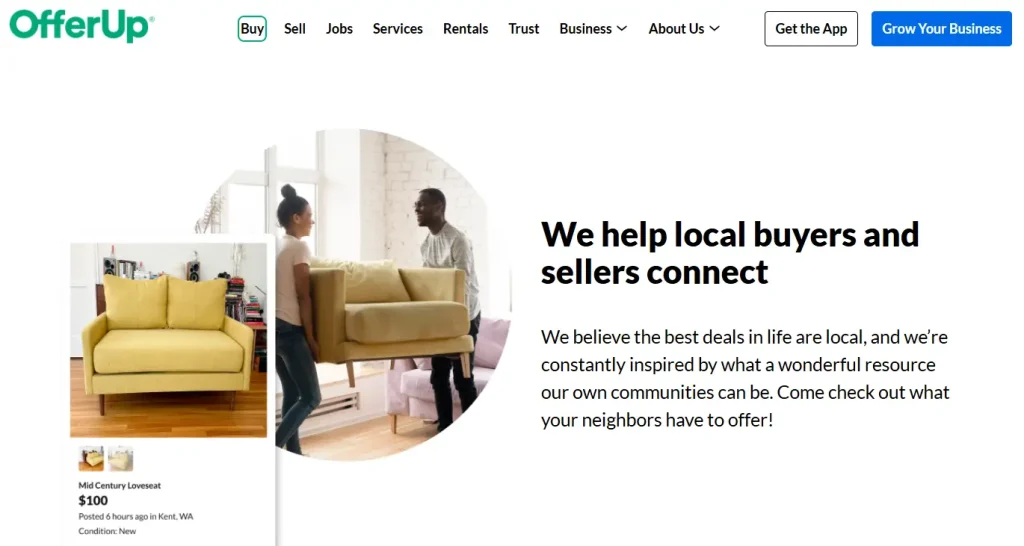
Final Thoughts
These are the details on the top 10 Facebook marketplace alternatives to sell your stuff. I have researched and compiled this list so that you can visit them and create your profile on one or more to start selling your items comfortably and quickly. Now, it is all up to you to understand your requirements and make a decision accordingly.
Further, consider different factors like shipping, platform fees, and payment methods. Also, focus on security and privacy so that you can retain trust with your audience and customers. In this way, you can pocket long term benefits.


